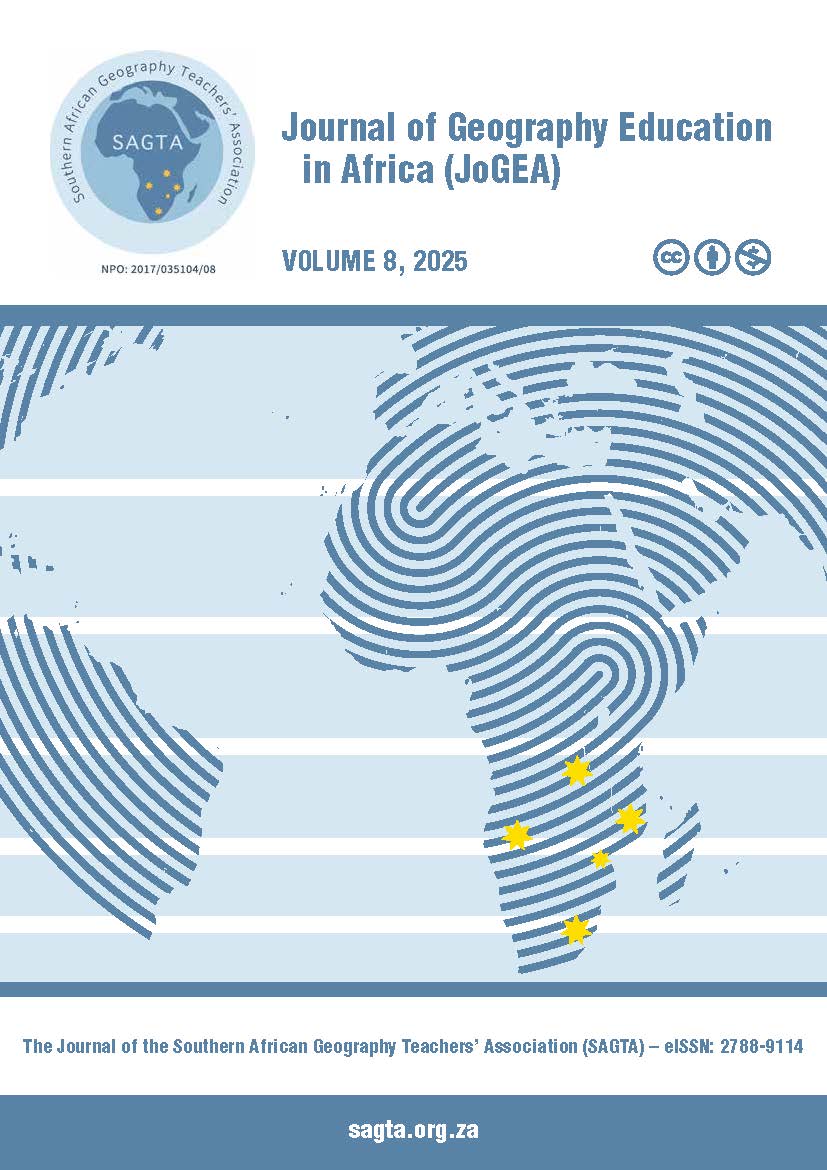Assessing high school learners’ perceptions of climate change in Rwanda: Implications for education and advocacy
DOI:
https://doi.org/10.46622/jogea.v8i.5488Keywords:
Climate change, Education and advocacy, Learners, Knowledge, PerceptionsAbstract
Understanding high school learners’ perceptions of climate change is important for climate scientists since they are the next generation of leaders, policymakers, and citizens who will be responsible for addressing and mitigating the impacts of future climate change. There are few studies on the knowledge and understanding of climate change by learners in Rwanda. This study’s objectives are to assess the perceptions of high school learners in Gisagara District in Rwanda regarding climate change, and explore the implications for education and advocacy. A mixed-methods approach, combining closed and openended questionnaires, was used to gather quantitative and qualitative data from learners. Participants (n=251) were from six different high schools. Results of the study are that high school learners have varying perceptions of climate change and these are most strongly influenced by availability of resources on climate change, including from the internet, and personal motivation or interest in the topic. Suggestions from learners on how to increase understanding of climate change issues include prioritising climate change education within the school curriculum, incorporating real-life examples, interactive learning activities, and collaborative partnerships. Through effective education and advocacy strategies, young people can play a pivotal role in shaping policies, fostering behavioural changes, and raising awareness about the importance of addressing climate change for the well-being of both present and future generations.
Downloads
Published
Issue
Section
License
Copyright (c) 2025 Guwa Chikomo, Mr T. Murwendo

This work is licensed under a Creative Commons Attribution-NonCommercial-ShareAlike 4.0 International License.


